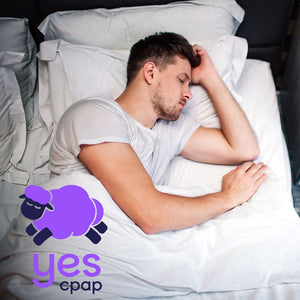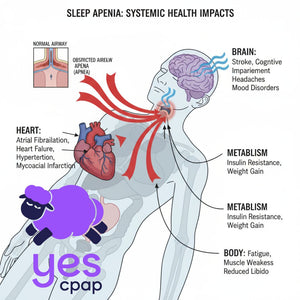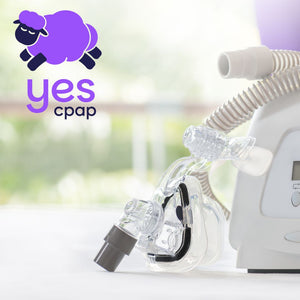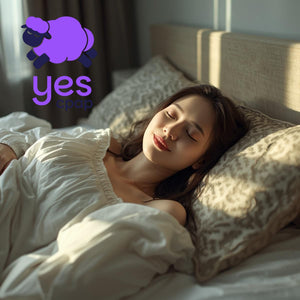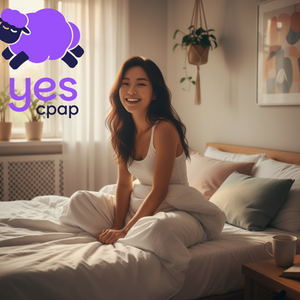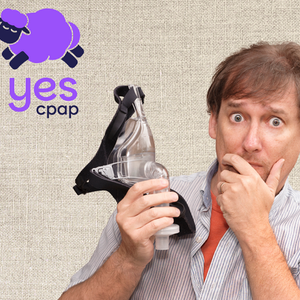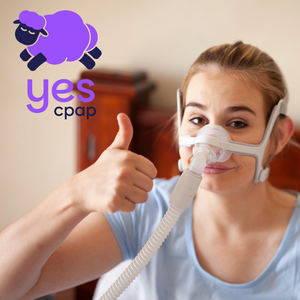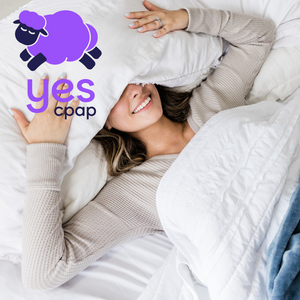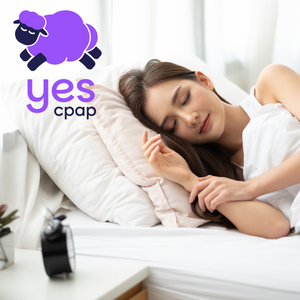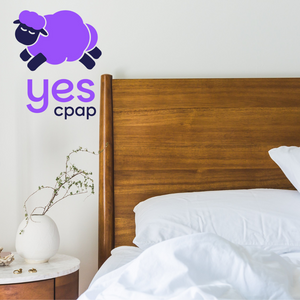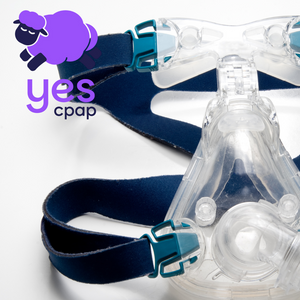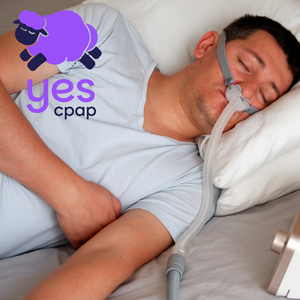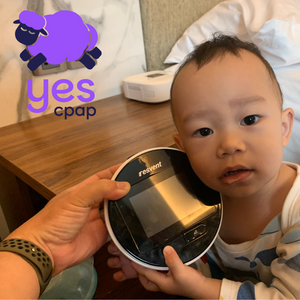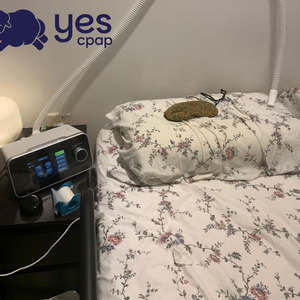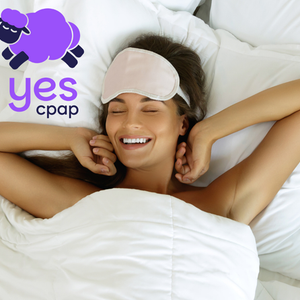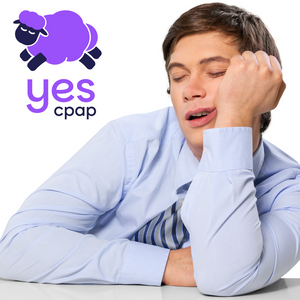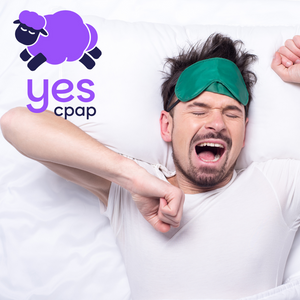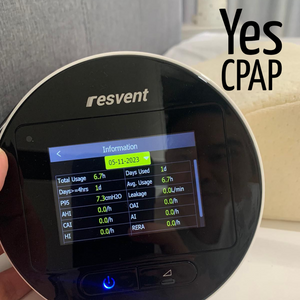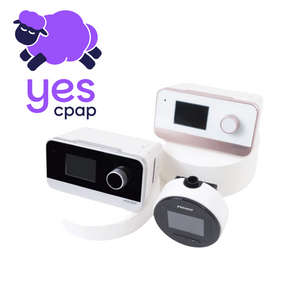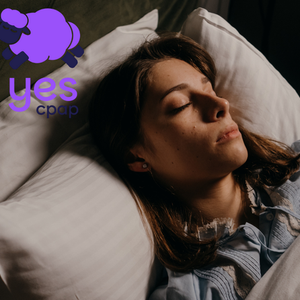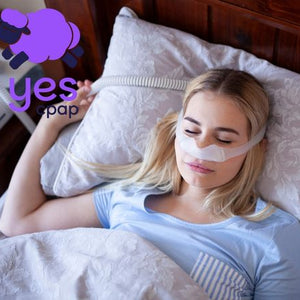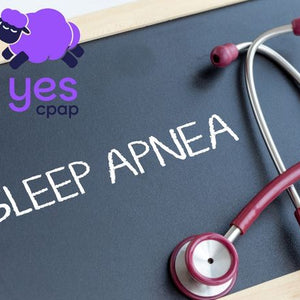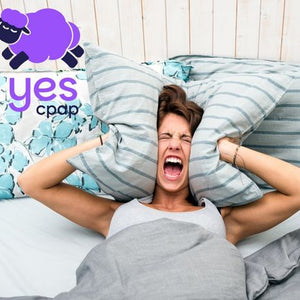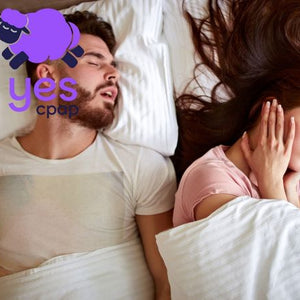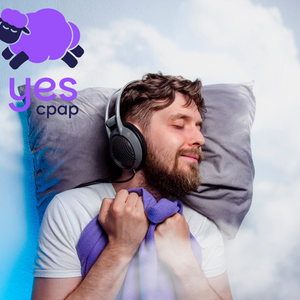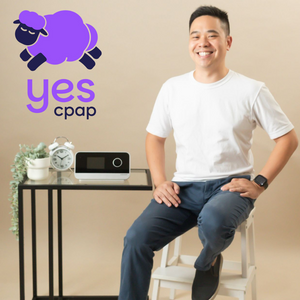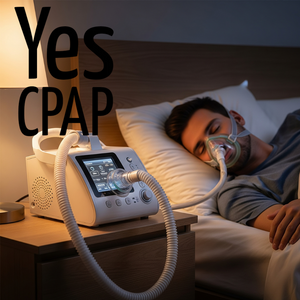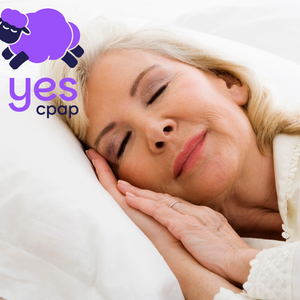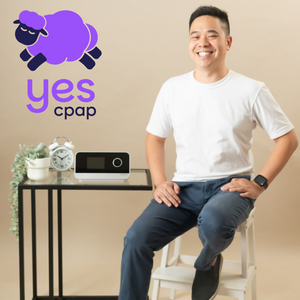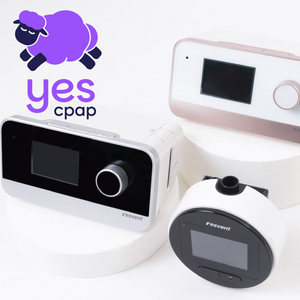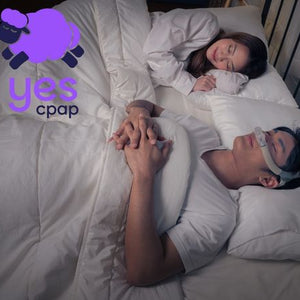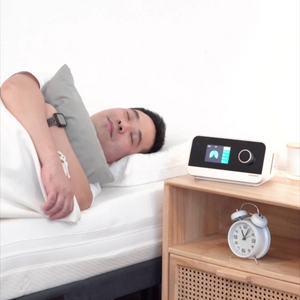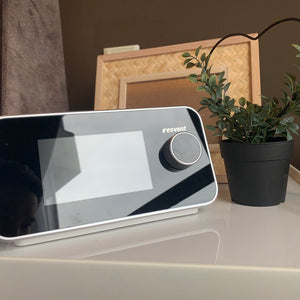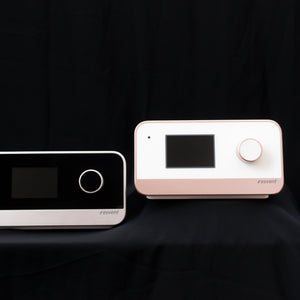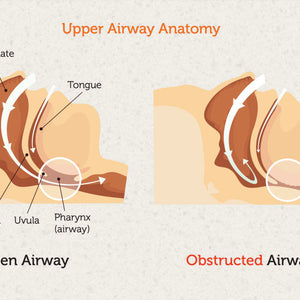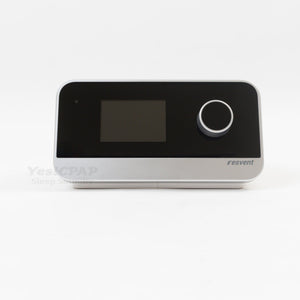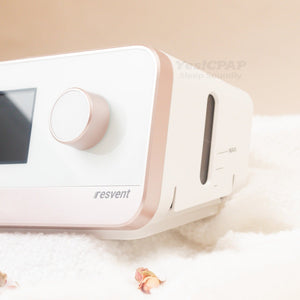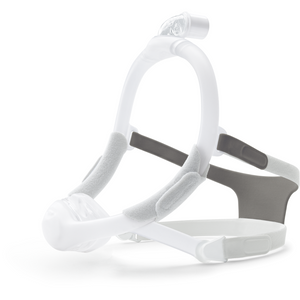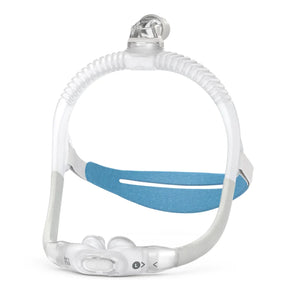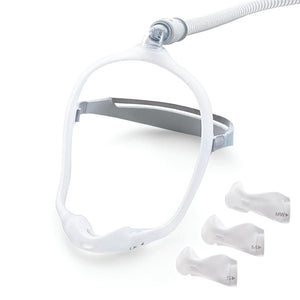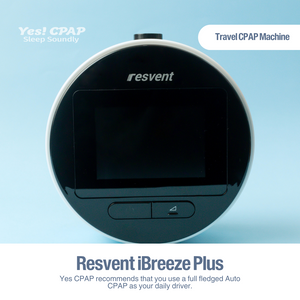Do you often wake up at night gasping for air? Struggle to fall asleep even when you're exhausted? Or wake up feeling tired with a pounding headache?
If yes, you're not alone. However, recent research shows that 30.5% of Singapore's adult population suffers from moderate-to-severe obstructive sleep apnea (OSA), with an estimated 91% remaining undiagnosed. These sleep problems aren't just "bad habits" - there's complex medical science behind them.
Why You Wake Up at Night Struggling to Breathe
Your Body's Survival System Working Overtime
When you sleep, all your muscles naturally relax. This includes the muscles that keep your throat open so air can flow to your lungs.
But for some people, this relaxation process causes problems. The soft tissue at the back of your throat collapses when the muscles in your face and neck relax while you sleep. Therefore, your airway gets blocked, and a lack of oxygen triggers a survival reflex that wakes you up just enough to start breathing again.
What Happens Inside Your Body When Breathing Stops
When your airway gets blocked during sleep:
- Oxygen levels drop dramatically - from normal 95-100% down to 80% or lower
- Your brain panics and releases stress hormones - adrenaline floods your system
- Your heart races - trying to compensate for the oxygen shortage
- Blood pressure spikes - your cardiovascular system works overtime
- You wake up briefly - often without realizing it
This process can happen dozens or even hundreds of times per night. As a result, this explains why you feel exhausted despite "sleeping 8 hours."
Latest Research: How Breathing Problems Change Your Brain
Recent neuroimaging studies published in Neurology show that people with breathing problems during sleep may have a larger hippocampus, the area of the brain responsible for memory and thinking. However, the study also found that those with lower oxygen levels during sleep had changes in the brain's white matter - a sign of decreased brain health.
Meanwhile, research from 2024 shows that sleep apnea contributes to dementia development among adults, particularly women. At every age level, women with sleep apnea were more likely than men to develop cognitive problems.
The Science Behind Morning Headaches
Why Your Head Pounds When You Wake Up
People with sleep apnea may be up to three times more likely to experience morning headaches. But why does this happen?
When you stop breathing during sleep, several things occur:
- Carbon dioxide builds up in your bloodstream
- Blood vessels in your head dilate trying to get more oxygen to your brain
- Intracranial pressure increases putting stress on brain tissue
- Sleep disruption affects pain processing making you more sensitive to headaches
These "hypoxic headaches" usually don't last long and sometimes disappear within an hour. However, they're a clear warning sign that your brain isn't getting enough oxygen during sleep.
The Research Evidence
A comprehensive study of 1,131 patients found that 29% reported morning headaches. The research showed that morning headaches were associated with female sex, history of hypertension, unrefreshing sleep, and choking sensations at night.
Interestingly, the severity of sleep apnea didn't always correlate with headache frequency. This suggests that individual brain sensitivity plays a role in how breathing problems affect morning pain.
Why You Can't Fall Asleep at Night
Your Brain's Arousal System Stuck in "On" Mode
Difficulty falling asleep isn't just about being "too stressed." There's real science behind sleep-onset problems.
Research shows that people with chronic insomnia have hyperarousal - their brain's alarm system stays active when it should be winding down. This creates a vicious cycle where worry about not sleeping actually prevents sleep.
The Neuroscience of Sleep Initiation Problems
Brain imaging studies reveal that people with difficulty falling asleep show abnormal activity in key regions including the insula, amygdala, and posterior cingulate cortex. These areas control:
- Emotional processing (amygdala)
- Body awareness (insula)
- Attention and self-referential thinking (posterior cingulate cortex)
When these regions are overactive, your brain can't transition into sleep mode properly.
Stress and Sleep: A Dangerous Partnership
Recent research in Communications Biology identified specific neurons in the brain's central amygdala that become active during stressful events and directly cause prolonged sleep-onset latency. This explains why stressful days often lead to sleepless nights.
The Hidden Health Dangers
Your Cardiovascular System Under Attack
Every time you stop breathing, your heart goes into overdrive. Research shows untreated sleep apnea increases risk of heart attack by 2-3 times, stroke by 2-4 times, and irregular heartbeat by 4 times.
Your Brain Literally Changes Structure
Studies show that chronic oxygen deprivation from sleep apnea can cause actual brain tissue changes, affecting memory, concentration, and decision-making abilities. Fortunately, these changes may be reversible with proper treatment.
The Economic Impact
Danish researchers found that sleep apnea patients have medicine and hospital costs two to three times higher than healthy individuals, with 30% higher unemployment rates. The total socioeconomic burden includes reduced income, increased sick leave, and higher accident rates.
Breakthrough Treatment Options: What 2024-2025 Research Shows
Revolutionary Medication Developments
A groundbreaking clinical trial released in 2024 showed that a combination medication reduced breathing disruptions by 56% compared to placebo. Furthermore, the FDA approved tirzepatide (Zepbound) in 2024 for treating moderate to severe sleep apnea in patients with obesity.
Technology Advances in Detection
In 2024, tech giants Apple and Samsung released sleep apnea detection features for their smartwatches, using advanced sensors to monitor sleep patterns, oxygen levels, and heart rate variability. This innovation helps raise awareness, as more than 80% of people with sleep apnea don't know they have it.
The Gold Standard: CPAP Therapy Evolution
Modern CPAP machines have evolved dramatically. They're now:
- Whisper-quiet (under 26 decibels)
- Automatic pressure adjustment based on your breathing patterns
- Connected to smartphone apps for progress tracking
- Designed for comfort with advanced mask technology
Singapore's Sleep Health Crisis: The Numbers You Need to Know
Research reveals alarming statistics about sleep health in Singapore:
- 1 in 3 adults has moderate to severe sleep apnea
- Over 90% remain undiagnosed and untreated
- 5.7% of obese school children have sleep apnea, rising to 13.3% in morbidly obese children
- Higher rates than global averages due to Asian facial structure and lifestyle factors
For comprehensive information about sleep apnea across all age groups in Singapore, explore our complete sleep apnea guide.
Take Action: Discover What's Wrong with Your Sleep
If you recognize these symptoms, don't wait. Sleep problems get worse over time, and the health consequences become more serious.
Simple Steps to Better Sleep
- Get tested - Know exactly what's happening during your sleep
- Understand your options - Modern treatments are more comfortable than ever
- Start treatment - Begin your journey to refreshing sleep
- Monitor progress - Track improvements in energy and health
The first step is understanding whether you have a sleep breathing disorder. Modern home sleep testing makes this easier than ever before.
Ready to discover what's affecting your sleep? Get your home sleep test today and take the first step toward better sleep health.
Treatment Solutions: Finding Your Path to Better Sleep
CPAP Therapy: The Gold Standard
For those diagnosed with sleep apnea, CPAP therapy remains the most effective treatment. Modern machines like the Resvent iBreeze Auto CPAP offer:
- Automatic pressure adjustment
- Quiet operation
- Smartphone connectivity
- Advanced humidification
Mask Comfort: Half the Battle Won
The right mask makes all the difference in treatment success. Popular options include:
- Philips Dreamwear Silicone Pillows Mask - Ideal for most beginners
- Philips Dreamwear Under the Nose Mask - Perfect for larger noses
- Philips Dreamwisp Mask - Best for higher pressure needs
Lifestyle Modifications That Help
While CPAP is often necessary for moderate to severe cases, lifestyle changes can also help:
- Weight management - Even modest weight loss can reduce sleep apnea severity
- Sleep position - Avoiding back sleeping helps keep airways open
- Alcohol limitation - Especially avoiding alcohol before bedtime
- Regular exercise - Improves muscle tone and cardiovascular health
20 Questions People Ask About Sleep Problems: Scientific Answers in Simple English
Nighttime Breathing Problems
1. Why do I wake up gasping for air in the middle of the night?
Think of your throat like a drinking straw. When you sleep, the muscles around your throat relax. Sometimes they relax too much and the "straw" collapses, blocking airflow. Your body panics when oxygen drops and jerks you awake with a gasp. This is your survival system working - like a smoke alarm going off when there's danger.
2. Why does my breathing feel like it stops during sleep?
During sleep apnea, your airway literally closes for 10 seconds or longer. It's like someone pinching a garden hose - water (or in this case, air) can't flow through. Your brain detects the problem and wakes you up just enough to "unpinch the hose" and start breathing again.
3. Why do I feel like I'm suffocating when I lie down?
When you lie flat, gravity works against you. Extra tissue around your neck and throat can press down on your airway, like stacking books on a flexible tube. This makes it harder for air to pass through, especially if you're overweight or have a thick neck.
4. Is it normal to stop breathing 30-100 times per night?
Absolutely not! Healthy people may have up to 4 breathing interruptions per hour. However, if you stop breathing 30-100 times in one night, that's like your body fighting for survival every few minutes. This puts enormous stress on your heart and brain.
5. Why do I wake up choking or coughing?
When your airway suddenly opens after being blocked, air rushes in forcefully. Think of it like uncorking a bottle - there's a sudden release. This can trigger coughing or a choking sensation as your body tries to clear the airway and restore normal breathing.
Difficulty Falling Asleep
6. Why can't I fall asleep even when I'm exhausted?
Your brain has an arousal system that's supposed to turn off at bedtime, like dimming lights in a theater. But in some people, this system stays "stuck" in the on position. Stress, anxiety, or worry about not sleeping keeps your brain alert when it should be winding down.
7. Why does my mind race when I try to sleep?
Scientists call this "cognitive hyperarousal." It's like having a radio that won't turn off in your head. Your brain keeps processing the day's events, worrying about tomorrow, or focusing on not being able to sleep. This mental activity prevents the natural transition into sleep mode.
8. Why do I feel more awake at bedtime?
This can happen due to poor sleep timing or "sleep anxiety." If you've struggled with sleep before, your brain starts associating your bed with frustration instead of rest. It's like Pavlov's dog, but in reverse - instead of getting sleepy in bed, you become more alert.
9. Can stress really prevent me from falling asleep?
Yes! Stress releases cortisol and adrenaline - the same hormones that would help you run from a tiger. These chemicals tell your body to stay alert and ready for action. However, you can't sleep when your body thinks you're in danger, even if the "danger" is just work stress.
10. Why do I suddenly jerk awake just as I'm falling asleep?
These are called "hypnic jerks." As your brain transitions from wake to sleep, sometimes the signals get mixed up. Your brain might interpret the muscle relaxation as falling and sends a "catch yourself" signal. It's like your brain's safety net kicking in at the wrong time.
Morning Symptoms
11. Why do I wake up with headaches every morning?
Sleep apnea headaches happen because your brain doesn't get enough oxygen at night. It's like your brain is doing intense exercise all night without enough air. Carbon dioxide builds up in your blood, blood vessels in your head expand, and you wake up with pressure and pain.
12. Why do I feel more tired after sleeping 8 hours?
If you have sleep apnea, you're not actually getting restorative sleep. It's like trying to fill a bucket with holes in it - no matter how much water (sleep) you pour in, it keeps leaking out due to constant awakenings. Your brain never reaches the deep sleep stages it needs for recovery.
13. Why is my mouth always dry when I wake up?
Sleep apnea often causes mouth breathing. When your nose is blocked or your airway is restricted, you breathe through your mouth all night. This is like leaving a window open in winter - all the moisture escapes, leaving your mouth feeling like the desert.
14. Why do I wake up feeling like I didn't sleep at all?
Sleep apnea fragments your sleep into tiny pieces. Even though you might sleep for 8 hours, you're actually waking up hundreds of times. It's like trying to watch a movie that keeps pausing every few seconds - you never get the full experience.
15. Why do I have brain fog and memory problems?
Your brain cleans itself during deep sleep, like a janitor working the night shift. Sleep apnea prevents deep sleep, so toxins and waste products build up. Plus, lack of oxygen affects the hippocampus - your brain's memory center. It's like trying to run a computer with insufficient RAM.
General Sleep Apnea Questions
16. Can thin people have sleep apnea?
Yes! While obesity increases risk, about 30% of people with sleep apnea are normal weight. It often depends on your facial structure, jaw size, or tongue position. Think of it like different shaped bottles - some naturally have narrower necks that are more likely to get blocked.
17. Is loud snoring always a sign of sleep apnea?
Not always, but it's a major warning sign. Snoring is like a rattling pipe - it means air is having trouble getting through. While not all snorers have sleep apnea, almost all people with sleep apnea snore loudly. The louder the snoring, the higher the risk.
18. Can sleep apnea cause high blood pressure?
Absolutely. When you stop breathing, your blood pressure spikes as your heart works harder to pump blood to oxygen-starved organs. Over time, this is like constantly revving a car engine - it wears out your cardiovascular system and leads to permanently high blood pressure.
19. Will I need CPAP therapy forever?
For most people, yes. Sleep apnea is usually a chronic condition, like diabetes or high blood pressure. CPAP doesn't cure sleep apnea - it manages it. Think of CPAP like glasses for your eyes. Glasses don't cure poor vision, but they help you see clearly while you wear them.
20. How quickly will I feel better with treatment?
Most people notice improvements within the first week of CPAP therapy. By the second week, energy levels significantly improve. After one month, you should feel like a completely different person. It's like watering a wilted plant - the recovery happens gradually but dramatically.
Take Action: Discover What's Wrong with Your Sleep
If you recognized yourself in any of these questions, you're not alone. The first step is understanding whether you have a sleep breathing disorder.
Ready to get answers? Take our home sleep test and discover what's really happening during your sleep. Don't spend another night wondering - take control of your sleep health today.
Conclusion: Your Journey to Better Sleep Starts Now
Sleep problems aren't character flaws or signs of weakness. They're medical conditions with real solutions backed by solid science.
Every night you delay treatment is another night of:
- Your brain being starved of oxygen
- Your heart working overtime
- Your risk of serious health problems increasing
- Missing out on the energy and mental clarity you deserve
The good news? Modern sleep medicine offers effective, comfortable solutions. Thousands of people have already transformed their sleep and reclaimed their lives.
Don't wait for a health crisis. Take control of your sleep health today.
Discover what's affecting your sleep with our home sleep test - the first step toward the refreshing sleep you deserve.
Medical Disclaimer: This article is for educational purposes only and does not replace professional medical advice. Always consult qualified healthcare providers for diagnosis and treatment. Individual results may vary.
References: This article incorporates findings from peer-reviewed medical journals including Sleep Medicine Reviews, American Journal of Respiratory Medicine, Neurology, Communications Biology, and other authoritative sources published between 2023-2025.




